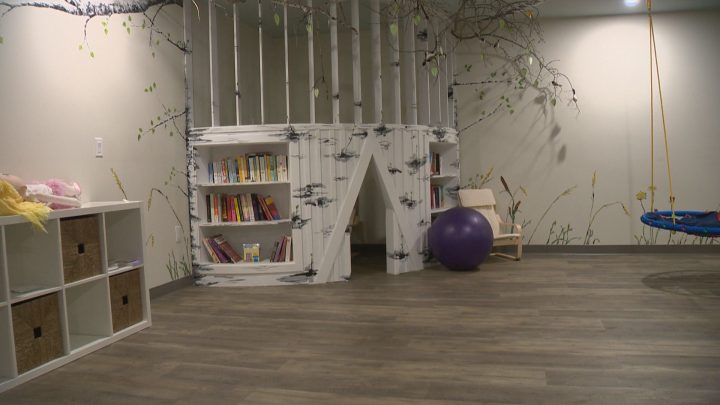It’s a full house at Sanctum 1.5 in Saskatoon.

The home in the Pleasant Hill neighbourhood offers prenatal health care and support to women who are living with, or at risk of contracting HIV.
“Often times in our community, when women are pregnant, the services don’t come in until after they’ve had baby, which is really counterproductive to keeping moms and babies together,” Sanctum Care Group executive director Katelyn Roberts said.
The 10-bed home opened on Oct. 1, 2018, and is currently at capacity.
“We have 10 moms here in total, seven who have had their children,” Roberts said.
“Having only been open for a short period of time, and only having 10 beds is something that we struggle with,” Roberts said.

Get weekly health news
“Knowing that there are many women out there who are at risk of having their children apprehended and often times with the right support, that doesn’t necessarily need to happen.”
A mother can continue to stay at the care home for three months once her baby is born. An integrated team works with the woman for up to a year, to help her transition into the community.
Roberts said the care home often works with women who are dealing with trauma, addiction, mental illness and poverty.
She said it is important to provide high-risk pregnant women with supportive housing and harm reduction to prevent child apprehension.
“Typically, if you are homeless and you are struggling with addiction, your baby is not going to come back to you, but this offers an alternative to that,” Roberts explained.
“The change that we’re making, in terms of preventing the long-term harmful impacts of being in foster care, you can’t put a price on that, and you can’t put a price on a mom and baby bonding and being together,” Roberts said.




Comments
Want to discuss? Please read our Commenting Policy first.